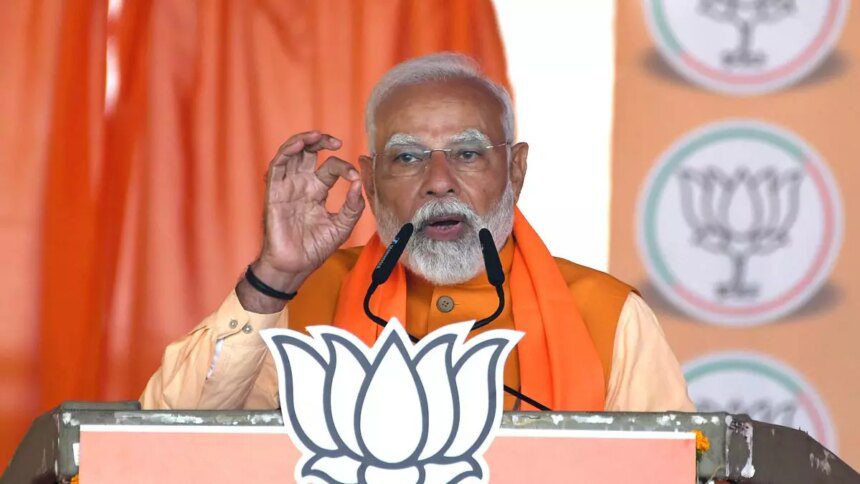Today marks a significant moment for Prime Minister Narendra Modi as the Delhi Assembly elections unfold, presenting a critical challenge for his party, the Bharatiya Janata Party (BJP). The BJP has been trying to gain control of the capital for over a decade, facing off against the formidable Aam Aadmi Party (AAP), which has held power since 2015.
Over 15 million voters are set to cast their ballots in Delhi, which serves as the administrative core of India, to fill 70 seats in the local Assembly. The AAP, or Common Man’s Party, has earned praise for transforming education and healthcare in the region. Meanwhile, the BJP is capitalizing on a recent surge in popularity among the middle class, partly due to record tax cuts introduced in the government’s latest budget.
Both political parties are focusing on financial incentives, particularly targeted at women and other demographic groups, as they seek to secure votes. The AAP has prioritized welfare initiatives over the past decade, successfully garnering support from lower-income families in a city characterized by stark economic disparities. However, AAP leader Arvind Kejriwal, once celebrated as an anti-corruption activist, has faced bribery allegations in recent years, which have tarnished the party’s reputation and its governing capabilities.
Sanjay Kumar, a professor at a Delhi-based research institute, noted that the BJP’s standing has improved while AAP’s image has taken a hit. The government’s recent tax relief is expected to help the BJP gain traction in the capital, a region it has not won since 1998. At a recent rally in Delhi, Modi emphasized that the middle class regards the latest budget as exceptionally favorable, receiving enthusiastic support from attendees.
Kumar believes that the middle class in Delhi is substantial in number and has already shown a tendency to lean towards the BJP. However, he doubts that the tax cuts will result in a drastic shift in voting behavior. A BJP victory in Delhi would represent another electoral triumph for the party, following recent wins in Haryana and Maharashtra, thereby helping to mend the wounds from their previous national election losses.
Conversely, if Kejriwal succeeds, it would reaffirm the viability of his welfare-centric policies, despite recent challenges the party has faced. The rivalry between the AAP and BJP has intensified over the past decade, affecting governance in Delhi.
The AAP is currently under scrutiny regarding a liquor license distribution scandal, with several leaders, including Kejriwal and former deputy chief minister Manish Sisodia, having spent considerable time in custody without trial. In September, Kejriwal resigned as chief minister, promising to return to power this year.
The AAP has rejected the accusations, claiming they are merely a politically motivated campaign orchestrated by the BJP-led federal government, which oversees various investigative agencies. Analysts anticipate that a victory for AAP could lead to continued tensions and potential administrative stasis in Delhi.
Although the Delhi government operates under an elected Assembly, its authority is limited, especially regarding police control and administrative appointments, which are largely overseen by a central government appointee.
Neelanjan Sircar, a professor at Ahmedabad University, remarked that the BJP is unlikely to adjust its approach, especially if AAP secures a significant win, suggesting that the BJP may become even more aggressive in its tactics.
The election results are expected to be revealed on February 8.










